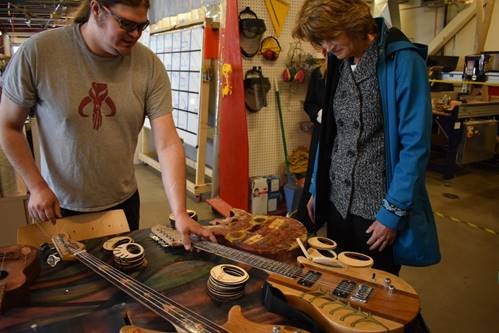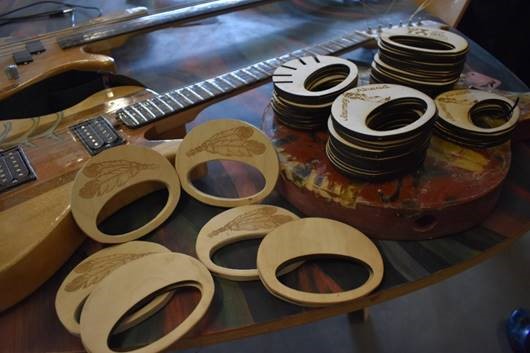Van Hollen, Murkowski, Foster Introduce Bipartisan, Bicameral Bill to Create National Fab Lab Network
Legislation would spur innovation and training, expanding Fab Labs across the country
U.S. Senators Chris Van Hollen (D-Md.) and Lisa Murkowski (R-Alaska) and U.S. Representative Bill Foster (D-Ill.) recently introduced the National Fab Lab Network Act, legislation to expand Fab Labs across the country. These facilities are equipped with digitally-controlled tools that enable individuals to create and innovate new products. These tools range from laser cutters, to 3D printers, to automated knives — and training is also provided. To encourage the growth and expansion of new and current Fab Labs, this legislation would create a federally-chartered non-profit organization to serve as a central seed funding source for Fab Labs across the country – this network would foster public-private partnerships and provide aspiring innovators with increased access. Alaska is home to the CITC Fab Lab in Anchorage.

Senator Murkowski visiting the Cook Inlet Tribal Council Fab Lab in Anchorage, Alaska.

Handmade items produced by Alaskan youth at the Cook Inlet Tribal Council Fab Lab.
“A national network of Fab Labs will help keep our country on the forefront of innovation – connecting students and entrepreneurs with new technologies and providing them with the opportunity to turn ideas into goods. These facilities have the ability to spur small-scale, local businesses and manufacturing, ultimately helping to foster an economy that works for all Americans,” said Senator Van Hollen. “I urge Congress to take up this bipartisan, common-sense legislation to keep America’s economy moving forward.”
“Fab Labs are driving state-of-the-art practices in the technology, manufacturing, and energy fields that will boost our economy and improve our standard of living. The examinations and experimentations that are taking place in these new educational spaces are challenging young Alaskans to pursue STEM education and developing a new generation of problem-solvers to tackle some of our most challenging issues,” said Senator Murkowski. “Having hands-on experience with high-tech design programs, electronic and programming tools, and industrial grade manufacturing machines is not only helping prepare students for quality, high-paying jobs, it’s also opening their eyes to their own potential. Fab Labs are a place for students to turn their creativity and ingenuity into solutions to practical problems-- a place where big, innovative ideas can become reality.”
“Fab Labs are an excellent way to give students of all ages an opportunity to explore STEM in an interactive way and to foster creativity and curiosity in new ideas,” Representative Foster said. “New ideas are vital to economic growth in our country. A National Fab Lab Network will not only provide people access to tools to develop new ideas, but it will also give entrepreneurs access to equipment and resources to develop new models and prototypes and grow their businesses.”
“At CITC we’ve seen up close the empowering effects of hands-on STEM activities for our youth in our Anchorage-based Fab Lab. When we give our youth the tools to be self-determined, to create and design, we give them the ability to connect with their collective potential. We are excited to extend this opportunity through a national network of Fab Labs,” said Gloria O’Neill, President/CEO of Cook Inlet Tribal Council (CITC).
"Legislation that would create a National Fab Lab Network is an excellent mechanism for encouraging innovation, new technologies and new ways of engaging students in Alaska and elsewhere across the country," said Jim Johnsen, President of the University of Alaska. "UA is committed to working with Sen. Murkowski and the other sponsors to encourage its passage."
The National Fab Lab Network Act would create a nonprofit charter similar to those started for groups like Little League Baseball. The goal of the Network would be to establish at least one Fab Lab for every 700,000 people, or roughly one lab in every Congressional district. A copy of the legislation can be found HERE.








